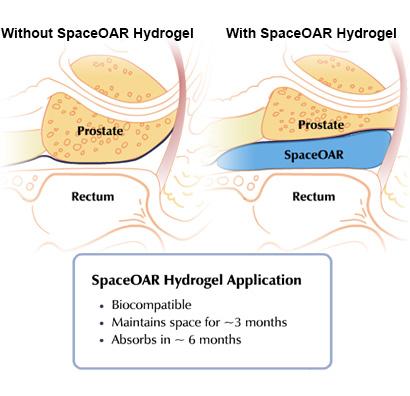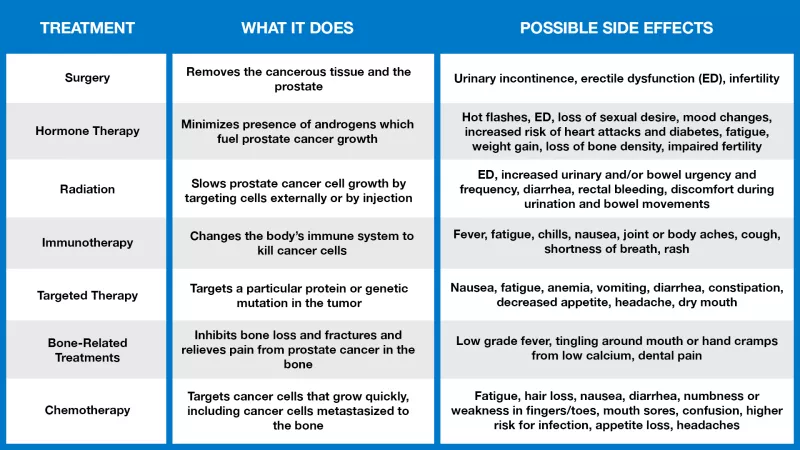Best Prostate Cancer Doctor In Mumbai for Dummies
Wiki Article
Prostate Cancer Therapy: Surgical and Non-Surgical Approaches Explained
When faced with a prostate cancer cells diagnosis, the array of treatment alternatives can seem overwhelming. From medical treatments to non-surgical techniques, each method lugs its own set of advantages and considerations. The decision-making process entails evaluating aspects such as efficiency, possible adverse effects, and long-term results. Understanding the nuances of medical methods, like robotic-assisted surgical treatment, and non-surgical therapies such as radiation treatment and hormonal agent treatment, is important for patients and their family members. This thorough introduction intends to clarify the complexities of prostate cancer therapy, providing understandings into the details of each technique to empower individuals in making informed options concerning their health and wellness.Surgical Therapy Options
When thinking about surgical treatment alternatives for prostate cancer, individuals and medical care companies usually evaluate the threats and advantages connected with different procedures,. One typical medical strategy is extreme prostatectomy, which involves the elimination of the entire prostate gland. This treatment is usually advised for clients with local prostate cancer and offers the potential for a treatment. Nevertheless, radical prostatectomy can cause adverse effects such as urinary system incontinence and impotence.
Another surgical choice is robotic-assisted laparoscopic prostatectomy, a minimally invasive treatment that uses a robot system to aid the doctor in getting rid of the prostate. This method can result in less blood loss, shorter hospital remains, and quicker recovery times contrasted to typical open surgical procedure. However, it likewise lugs the danger of problems such as infection and injury to surrounding organs.
Ultimately, the selection of medical treatment for prostate cancer cells depends on different variables including the phase of the cancer, the individual's total health and wellness, and their preferences relating to potential adverse effects and healing times. Consulting with a multidisciplinary team including urologists, oncologists, and radiation oncologists can assist patients make notified choices concerning one of the most suitable medical strategy for their individual situation.

Non-Surgical Therapy Alternatives
Considering choices to medical interventions, non-surgical therapy choices for prostate cancer cells offer people additional opportunities for managing the illness while minimizing potential surgical dangers. One non-surgical strategy is Active Monitoring, where clients with low-risk prostate cancer are monitored closely through normal check-ups, blood tests, and biopsies, without undergoing instant therapy. This strategy aims to stay clear of unnecessary therapy and its connected negative effects, such as incontinence and erectile disorder.An additional non-surgical choice is Radiation Therapy, which uses high-energy rays to kill cancer cells (best prostate cancer doctor). This treatment can be supplied externally using a device (Exterior Beam of light Radiation) or inside via small contaminated pellets positioned near the tumor (Brachytherapy) Radiation therapy can be made use of as a key treatment or in mix with other therapies, such as hormone therapy
In Addition, Hormonal Agent Therapy is a non-surgical approach that aims to minimize the levels of male hormonal agents (androgens) in the body, as these hormones can sustain the growth of prostate cancer cells. By blocking or lowering androgen degrees, hormonal agent therapy can decrease cancer progression and alleviate symptoms in advanced instances.
Robotic-Assisted Surgery for Prostate Cancer Cells

One of the crucial benefits of robotic-assisted surgical procedure for prostate cancer cells is its ability to reduce the threat of complications and side effects frequently linked with open surgical procedure, such as blood loss, discomfort, infection, and extended recovery times. In general, robotic-assisted surgical procedure represents an advanced approach to prostate cancer treatment that incorporates technical innovations with surgical proficiency to optimize person outcomes.
Radiation Therapy for Prostate Cancer Cells
Using innovative radiation modern technology, radiation therapy plays a critical role in the comprehensive treatment image source of prostate cancer. Radiation treatment makes use of high-energy radiation to destroy cancer cells and shrink lumps. It is an usual treatment alternative for prostate cancer, either as a primary therapy or in mix with surgery, hormonal agent treatment, or radiation treatment.There are 2 major kinds of radiation treatment made use of for prostate cancer cells: external light beam radiation treatment (EBRT) and brachytherapy. In EBRT, an equipment supplies radiation from outside the body to the prostate. This therapy is normally offered over a number of weeks, with everyday sessions lasting just a few mins (best prostate cancer doctor). Brachytherapy entails putting contaminated seeds or resources directly into the prostate near the malignant cells. These seeds give off radiation that kills the cancer cells in time.
Radiation therapy for prostate cancer cells is extremely efficient, with high treatment rates, especially for local cancer. It is likewise a useful option for clients that may not be suitable prospects for surgery. Like any kind of treatment, radiation treatment may have side effects, such as urinary troubles, exhaustion, and skin inflammation, but these are convenient and typically momentary.
Hormone Therapy for Prostate Cancer
Hormonal agent treatment is a typically used treatment approach for prostate cancer management. Prostate cancer cells is commonly sustained by the male hormone testosterone. Hormone therapy, likewise recognized as androgen starvation treatment, aims to decrease testosterone levels in the body or obstruct the hormonal agent's impacts on the prostate cancer cells, therefore slowing down the disease's development. This therapy is especially effective in sophisticated stages of prostate cancer cells, where surgical procedure or radiation treatment might not be enough.There are different sorts of hormonal agent therapy for prostate cancer cells, including medications that lower testosterone degrees (such as luteinizing hormone-releasing hormonal agent agonists and antagonists), or drugs that block testosterone from reaching cancer cells (like anti-androgens) Hormone therapy can be utilized alone or in combination with various other therapies like radiation therapy, depending on the phase and aggressiveness of the cancer.
While hormone therapy can properly control prostate cancer cells growth, it may include adverse effects such as hot flashes, loss of libido, impotence, and weakening of bones - Best prostate cancer hospital in Mumbai. Regular surveillance and conversations with medical care companies are vital to take care of these negative effects and guarantee the treatment's efficiency
Verdict
To conclude, the treatment alternatives for prostate cancer include non-surgical and surgical strategies such as robotic-assisted surgical procedure, radiation therapy, and hormone treatment. Each technique has its very own benefits and risks, and the choice of treatment relies on numerous factors such as the stage of cancer and useful content general wellness of the patient. It is essential for patients to go over these options with their doctor to figure out one of the most appropriate course of activity for their specific circumstance.
Making use of innovative radiation technology, radiation treatment plays a critical role in the detailed More about the author therapy of prostate cancer. It is a common treatment option for prostate cancer cells, either as a key therapy or in combination with surgical procedure, hormone treatment, or radiation treatment.
Radiation therapy for prostate cancer cells is extremely effective, with high remedy rates, particularly for local cancer cells.Hormonal agent treatment is a frequently utilized therapy approach for prostate cancer monitoring.In conclusion, the treatment alternatives for prostate cancer cells include non-surgical and medical techniques such as robotic-assisted surgery, radiation treatment, and hormone treatment.
Report this wiki page